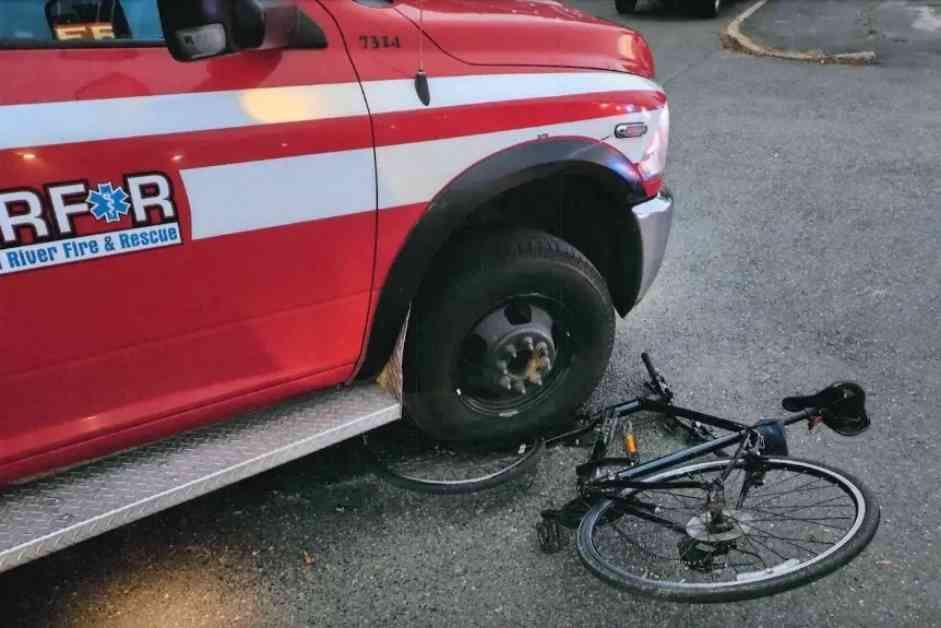A cyclist in Oregon, 71-year-old William Hoesch, has taken legal action after an unsettling incident involving an ambulance. The ambulance allegedly struck Hoesch, causing him injuries and damaging his bicycle. To add insult to injury, Hoesch was then billed $1,800 for the ambulance ride to the hospital following the collision.
The confrontation occurred in October 2022 in Rainier, Oregon. Hoesch was riding his bike when he collided with an ambulance that was making a right turn near the Columbia River Fire & Rescue base. Hoesch shared his side of the story, expressing surprise at the ambulance’s turn and his inability to stop in time to avoid the collision. The collision left Hoesch with injuries like a broken nose, scrapes, and bruises.
After the accident, Hoesch was transported to the hospital in the same ambulance that struck him. Later, he was shocked to receive a bill of $1,862 for the ride. His attorney, Travis Mayor, described the bill as an additional blow to Hoesch, who was already dealing with the aftermath of the accident.
Hoesch has since filed a lawsuit seeking $997,000 in damages. The lawsuit includes compensation for pain and suffering, medical expenses, and future treatments. Hoesch’s attorney highlighted the financial strain on his client, emphasizing the unexpected burden of medical bills and long-term health issues stemming from the incident.
The lawsuit also raises questions about insurance coverage. Hoesch’s uninsured or underinsured motorist insurance is expected to cover damages that Columbia River Fire & Rescue does not pay. Columbia River Fire & Rescue has refrained from commenting on the case.
This case underscores the exorbitant costs of ambulance services in the U.S., particularly for patients with inadequate insurance coverage. Ground ambulance rides can cost patients hundreds to thousands of dollars, with many trips falling outside insurance network coverage. The high costs are attributed to staffing, equipment, and low reimbursement rates from insurance companies.
Although federal legislation like the No Surprises Act protects against certain unexpected medical bills, ground ambulance services remain unregulated, leaving patients vulnerable to hefty charges. Only 18 states have laws addressing surprise ambulance bills, primarily for state-regulated insurance plans. Patients facing high ambulance bills are advised to review itemized bills, negotiate with providers, ensure insurance coverage, and seek discounts or payment plans.
Hoesch’s lawsuit has the potential to influence discussions on ambulance service costs and policies in the U.S. It sheds light on the financial challenges individuals face in emergency situations and the need for greater transparency and protections against surprise billing. As the case unfolds, it may set a precedent for others grappling with similar circumstances and prompt reevaluation of ambulance service regulations and billing practices nationwide.













